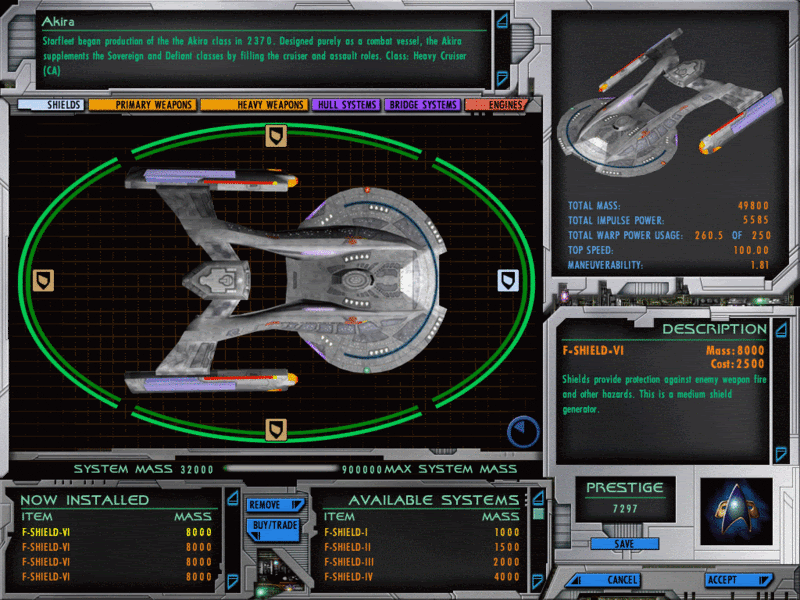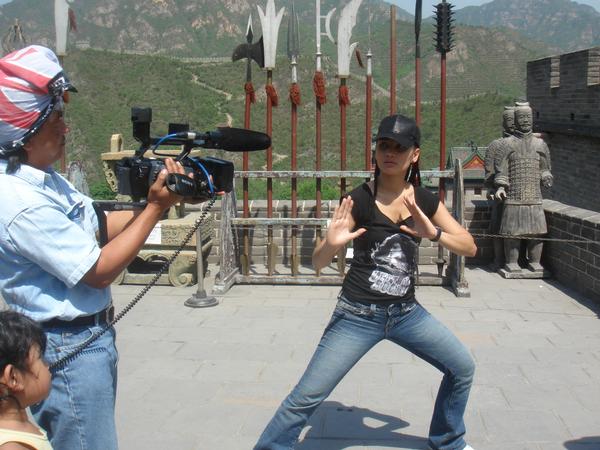Discussion on occultation is a vast topic and traditions in this regard are many. what is necessary for us to know is the following:is there anyone to ask about the philosophy behind occultation and is there anyone who can say: since I do not know the reason behind occultation, I do not believe as you do in the existence of Mahdi and I further say: if as per what you say, Mahdi is the imam, then it is necessary for him to appear amongst the people and walk in the market-places!
We say: concerning the numerous 'mustafiza' traditions which we previously mentioned and few more of which we shall inform you about later on, Mahdi the expected one is Abul-Qasim Muhammad-ibn-Hassan Askari who was born on 15th Shaban 256 a.h. besides, we have also mentioned to you the names of those learned scholars who have approved the above point.
Since Allah is all-wise, he would never command nor forbid any matter or action except out of prudent knowledge. The same is true for this particular matter. all that prudent knowledge is referred to those charged with a duty because, in the holy presence of god, there exists no want and his holy self is needless and all-sufficient. Thus every action of god is in conformity with prudent interests whether we realize those interests or not and whether we perceive those reasons or not.
From the known affairs where not even a single person dispute is this that every voluntarily and in-voluntarily incidents and affairs which occur in this world should be as per the divine prudency and rather as per the divine will. Amongst these affairs, the most important of them is the occultation of Mahdi (a.s.). Based on this principle, the occultation of Mahdi must be as per prudency and wisdom, whether we perceive it or not and whether we understand its reason or not.
If we do not believe in what we have said, we are helpless in denying an affair for which we do not possess any reason of its denial - firstly that Mahdi is the same Muhammad-ibn-Hassan Askari. secondly that he is hidden from the views. (its meaning will be mentioned later on).
thirdly that his occultation has taken place by the will and decree of Allah.
If you pay attention and deliberate over each of these three affairs, you will realize that denying any one of them will not be rationally and traditionally permissible. So we are bound to believe that the event of Mahdi's occultation is in accordance with prudency. Otherwise, we have to deny one of the three afore-said affairs.
Saduq in his book 'Elalush - Sharayeh' has narrated from Abdullah-ibn-Fazl Hashami as saying: «I heard Sadeq aal-e-Muhammad saying: 'for the 'saheb-e-amir (master of the affairs) there shall occur an occultation during which every men of vanity will fall into doubt and skepticism.'»
I said: may I be sacrificed for you. for what reason?
He replied: for a reason which we are not at liberty to divulge.
I asked: what is the reason for hazrat's occultation?
he replied: the reason for hazrat's occultation is similar to the reason for concealment of the past divine proofs.
The reason behind Mahdi's occultation will not be disclosed but after his emergence just as the reason of Khizr's actions (meaning the drilling of a hole in the boat, the killing of a lad and the repairing of the wall) was not divulged until Musa and Khizr decided to part company. O son of Fazl. This affair is a divine affair, this secret is a divine secret and this concealment is a divine concealment. we must accept that all his actions are based on wisdom, even if the reason for them is not known to us.'
This saying is the truth which should be confessed and certified by every Muslim.
Verily, very often a person seeks the reason and philosophy for some of the divine acts for the sake of gaining certainty and tranquility of his own self and not that he wishes to use his confirmation and rejection as a means for perceiving the reason of divine actions or not.
Therefore, before mentioning the philosophy and reason for occultation we are bound to briefly present certain preliminaries. Those interested to know its details should refer to books which have been written in this regard. The preliminaries are as follows:
An invitor who invites the people towards his call is bound to take resort to the apparent and ordinary channels. For achieving his aims it is not permissible for him to refer to the unseen and supernatural channels because doing so would destroy the essence of reward and punishment. rather the coming of prophets and messengers would all come to vain.
A prophet and 'wasi' (legatee) are the same as far as the afore-said matter (invitation) is concerned and this matter is in fact one of the essential conditions of an evangelist (whether he may be a prophet or an imam). However there exists a difference between a prophet and an imam from another view-point and it is as such: as a prophet is the establisher and founder of religion it is obligatory for him to start his invitation and mission in a customary manner and notify the people about the ordinances (as against an imam).
Since argumentation has been completed upon the people through a prophet, it is necessary for the people to ask and inquire from an imam. It is not obligatory for an imam to invite the people and then guide them.
Rather it is obligatory upon the people to approach the imam and receive the religious commandments from him, protect him and ward off the enemies from him just as it was obligatory, for the people to protect their prophet and receive the religious commandments from him. When the people begin to lapse such duties and forsake their imam and the imam in turn fears from being killed by his enemies and finds none to defend him from his enemies it is permissible for him to isolate himself from the people and leave aside the duty of invitation and propaganda. This responsibility is directed towards the people and not the imam.
The views of 'muhaqqeq' i.e. Khawja Naseer Tusi too are the same. In his book 'Tajreed' he says: 'the presence of imam is one grace and his domination is another and his absence is due to our sake. Now that you have understood this matter, we say. We may mention the following as the reasons and philosophy behind the occultation of Imam-e-Zaman:
firstly: for rectifying and punishing the Shias and rather all the others:
If a prophet or an imam is present among a nation and that nation does not rise for his obligatory rights or does not obey his commands and in short, the prophet's invitation leaves no impression on the nation and rather they exceed the limit and cause harm to their prophet, it is permissible for the prophet to abandon and isolate his nation so that in this manner he rectifies his nation. Perhaps in this manner, the nation concerned would stop its rebellion and begin to adopt the path of guidance. Perhaps they would seek benefit from the prophet existence and an imam too would act as a preacher, guide, leader and the one inviting the people. The divine saying: ---
Stems from this very aspect.
When isolation and abandonment of invitation becomes the means for rectifying a nation then it is prudent to do the same even though people may be unaware of this matter. Moreover it would be beneficial to them even though they may not possess understanding of the same. This isolation and abandonment of invitation does not possess any fixed limit and boundaries and in fact, one cannot say anything about their limit. Rather its limit and duration depends on the nation turning back from its deviated path and becoming enlightened after heedlessness. it depends on the people's awareness of the benefits of the presence of the prophet or an imam.
History bears witness that Ahl-e-Bayt, revelation, messenger ship and Aal-e-Muhammad had to face too many calamities such as: hardship, suffering and non-revolt for the sake of the people instead of that right which Allah had set as the reward of his messengership. surely, they were always subjected to severe persecution and pressure such as being taken captive, imprisoned, hanged, expatriated, exiled and dispersed here and there.
Mahdi, the expected one is aware of all such matters and knows that he too would be subjected to such cruelties and oppression. Rather, it would be much more sever, greater and bitter in nature because people are aware of hazrat's objectives and are aware that hazrat would give orders to rise with their arms. Thus Mahdi has isolated himself from the nation because he knows that he would receive the same treatment as his father, fore-fathers, cousins, and relatives had received. besides, hazrat's objectives are nothing but to train the nation, make them aware, bring them back on the path of guidance and to seek his own just right. The author of Elalush-Sharaye has narrated a tradition from Imam Muhammad Baqer (a.s.) as such: 'when allah does not wish that we should remain amongst a group, he holds us back from them.'
Secondly: freedom in invitation and freedom in actions
Anyone who wishes to rise for rectifying a nation in either worldly or religious matters should possess friends and companions and have a pact with some of the superior men so that they either remain his helpers or at least do not create any obstacles for him. the essential condition of this pact and agreement is this that he should stop interference and invitation (of the people) and be congenial with them (so) that he may have remained loyal to his pact until his affair and the time of pact and agreement come to an end and he deals with them in the same manner as he deals with others. This means that some of the commandments should not be implemented with respect to those who have concluded a pact with him and he deals with them contrary to the realities because of fear and dissimulation. Thus Allah says: ---
... Except the polytheist with whom you have a valid peace treaty and who have not broken it from their side or helped others against you. You (believers) must fulfil the terms of the peace treaty with them.
When Mahdi (a.s.) shall emerge, he is bound to invite (the people) through ordinary channels and his duty would be to judge according to the realities and not to fear anyone just as the same can be found in most of the traditions. This is because Mahdi's period is the period of emergence of truth, the most sparkling emergence and so, fear and dissimulation are inconsistent with this matter. This requires that he should not have allegiance of anyone upon his neck. Indispensably, he should be needless of any pact and agreement which would result in dissimulation. This would occur only when the ordinary channels for his assistance come to halt.
Shaikh Saduq in «Kamaluddin» has directly narrated from Hashim-ibn-Salem who in turn has narrated from Imam Sadeq (a.s.) as such: 'the 'qaem' shall emerge without having allegiance of anyone on his back.
In the same book, Shaikh Saduq directly narrates from Hazrat Ali-ibn-Musa ar-Reza who said: I am as though seeing my Shias - at that time when they will have lost my fourth offspring - then, they will search for him like the cattles pursuing grazing lands but will not find him.
Narrator says: i asked: 'for what reason 'o son of messenger of Allah?'
he replied: it is because their imam will disappear.
I said: why will he disappear?
He replied: 'so that when he emerges with the sword, he will not have anyone's allegiance on his neck.
Thirdly: making perfect the people and improving their lot
Amongst the well-known facts which is not a subject of dispute is this that there exists differences in people's aptitude with regards to tolerance of duties, acquisition of knowledge and various other sciences. Differences in levels of faith, differences in recognition of prophets and legatees and differences in the divine laws too are the result of differences in people's aptitude. Verily, god does not make anyone responsible but as per the level of his aptitude.
Rather, how often it happens that when duties exceed a person's ability and teachings his aptitude the very purpose (for which the duties and teachings were given) is lost. moreover, he would resort to disobedience or would become an apostate or still further, his ignorance would increase more than before. the verse of the holy Quran says:---
('O lord, do not burden us with that which we cannot bear).
It is said that if Abuzar knew what was going on in Salman's heart, then he would have become an apostate or would have died.
Shaikh Kulaini in «Kafi» has narrated from Imam Sadeq (as.) as such: in Ali's (as.) book it is written: Dawoud said: 'o lord reveal to me the truth as it is (with thou) so that i can judge accordingly. It was replied: 'you do not possess the strength to bear this affair.'
hazrat insisted until god accepted.
One day a person approached Hazrat Dawoud with a complaint about another person and said: this man has taken away my wealth. God revealed to Dawoud that the claimant had killed the defendant's father and plundered his wealth. Hazrat Dawoud ordered for the claimants death until he was killed. His wealth was seized and given back to the defendant. People were amazed by this incident and word on this matter went around until it reached Hazrat Dawoud's ears. He became worried by these talks and requested god to relieve him from this uneasiness. Afterwards, god revealed to Dawoud as such: 'you should judge amongst the people by means of witness and evidence and persuade them to swear in my name....
Imam Sadeq (a.s.) said: 'if people knew how Allah has created them, then none amongst them would find fault with the other.' Imam Muhammad Baqer (a.s.) said: 'the believers possess (various) ranks and positions - some of them have one rank, while some others have two, three, four, five, six or seven ranks. if faith of the second level is conveyed to a person having faith of the first level, he will be unable to keep guard over it and if faith of the third degree is conveyed to a person possessing faith of second degree, he will be unable to bear it....
It has come down from traditions that when Mahdi emerges, he will rule as per his own knowledge; he will spread the true 'ma'aref' (divine sciences) amongst the people; he will remove the curtain obscuring the realities; he will enliven the holy religion of Islam and will annul all that is not in Islam and has been added to it such that people will imagine that Mahdi (a.s.) has brought a new religion and a new book.
Verily, the execution of such reforms and dissemination of the realities the way it should and must be carried out requires much more perfect aptitudes and intellects than what we have today.
Perhaps, postponement of Mahdi's emergence and continuation of his occultation is because of the hope of achieving perfection and development which, by the blessings of various sciences, is on the increase day by day.
The magazine 'Al-Helal' published an article about resurrection a few years ago under the title «does there exist a world after (the end of) this world?» and while replying to this question, it emphasised that a day will come when the literary and scientific world will reach its perfection like the material world.
Surely, very soon men shall become aware of the literary, scientific and ethical world - more than today when he is cognizant of the material world. Why shouldn't it be so especially when man has already perceived that the material world has ruined his rights and has put him in pressure and torment. Soon man shall witness how the earth will be illuminated by the divine light and by means of Mahdi's emergence.
Fourthly: test and examination for the people:
Amongst Allah's ways which is still prevailing amongst his servants - right from the time he appointed the prophet - (and Allah's ways never alter or change) is the matter of human evaluation and examination so that the one who is destroyed is done so on the basis of witness, and proof and the one who is enlivened is done so on the basis of witness and proof and the level of their faith and reality is manifested - rather their own condition becomes known to themselves. Verily, it often occurs that man's condition is unknown and remains a secret even for himself.
The divine shariats (laws) contains literary, material, wordly, spiritual, individual and social programs and teachings. This world is a school and the prophets are teachers and evangelists. Every school or lesson requires an examination appropriate to it. The phenomenon, which occur in this world are a sort of examination. The effect of those lessons on the people can be ascertained predominantly be means of such examination. as Allah says:---
Alif lam mim.
Do men think that they will be left alone on saying, we believe, and not be tried?
The holy Islamic shariat (religious law) is the most perfect of all the other shariats. In the Islamic shariat we find such divine sciences and instructions which cannot be found in other shariats. so all that was prevalent amongst the previous nations such as the various tests and examinations should, out of necessity, prevail in this nation too because this general rule comprises those lessons and even more than that.
Amongst the most important matters by which the previous nations were subjected to evaluation and examination was the matter of occultation of some of their prophets. Then, the same occultation should occur for the leaders of this nation too just as the holy prophet (s.a.w.a.) went into concealment in the mountain pass of Abu-Talib for a period of thirty years. Amongst the concealment of Mahdi so that the path of guidance is distinguished from the path of deviation and a believer is distinguished from a hypocrite. Like some of the prophets' concealment, the concealment of Mahdi is the greatest test and examination for Shi'ites and rather for the non-Shi'ites making no difference as far as the duration of concealment is. concerned.
Shaikh Saduq in «Kamaluddin» has imputably narrated from Sadir Sairafi as such:
'I along with Mufazzal-ibn-Omar, Abu Basir and Abaan-ibn-Tughlab got the honour of meeting Imam Jafar Sadeq (a.s.). We saw hazrat, sitting on the ground having put on a collarless cloak which had two short sleeves. He was weeping like a woman weeping over her lost dear one. The signs of grief and sorrow were visible on his blessed face and tears were flowing from his eyes. He was moaning and saying: 'my master, your occultation has snatched away the sleep from my eyes. It has taken away my comfort and has deprived tranquility from my heart. My master, your occultation has fastened my grief and sorrow forever. Due to loss of friends one after the other, our gathering has been broken. I do not feel the tears of my eyes and the yelling and crying of my heart which result from the past calamities and hardships but that I see the same in my imagination which is greater, more sorrowful, severe and unknown than all other difficulties.
Sadir says: our mind became perplexed (by witnessing imam's condition) and our hearts became upset as a result of imam's terrifying words about the destructible events. We thought that the calamities and misfortunes of the day which had befallen on imam had brought him to this state of grief and sorrow.
So we said: 'o son of the best mankind. May Allah not cause you to cry. For what reason are you weeping and what has made you to moan to such earnest?
Narrator says: Hazrat Sadeq (a.s.) heaved a sad sigh which caused pain to his heart and then said: 'this morning when I was looking at the book of «jafr» (the book which contains knowledge on deaths, calamities, misfortunes and knowledge about the past and future and which was exclusively given to Muhammad and his progeny by the exalted god) I came across such matters like the Qaem's birth, occultation, delay in reappearance, his long-life, the sufferings of the believers at that time, the appearance of doubt and uncertainty in their hearts because of hazrat's prolonged occultation, the deviations that will occur for majority of them and shirking of the Islamic obligations on their part whereas Allah says:---
«And we have made every man's actions to cling to his neck».
(«--» Here refers to the 'wilayat of the holy prophet's progeny).'
These events have overpowered me with grief and sorrow.
We said: 'o son of the messenger of Allah, we will be honoured if familiarized us with some of those things over which you have knowledge.
Imam Sadeq (a.s.) said: the three characteristic which Allah has assigned for three of his prophets has been assigned for our 'qaem' too.
First of all, the qaem's birth is the same as was the birth of Musa. Secondly, his occultation is the same as was the occultation of Isa and thirdly his delay is the same as was the delay in the coming of Hazrat Nuh (noah).
I n addition Allah has set the long-life of Hazrat Khizr as a proof for the qaem's long-life.
Narrator says: i said: 'o son of messenger of Allah, explain these affairs so that they become clear for us. He replied: with regards to Musa's birth, it should be said that when Firaun (pharaoh) realized and feared that his kingdom would fall by Musa's hand, he summoned the wizards. the wizards guided Firaun in the genealogy of Musa and said: Musa shall come from Bani-Israel'.
As a result, Firaun always ordered his men to slit the bellies of the pregnant women belonging to the tribe of Bani-Israel. For this purpose, (i.e. for killing Hazrat Musa) they murdered more than twenty thousand new-born babies. However they failed to kill Hazrat Musa as all-mighty Allah protected him.
Similarly, when Umayyads and Abbasids realized that the downfall of their cruel kingdom and empire would take place by Mahdi's hand, they set up enmity with us and engaged in killing and exterminating the descendants of the holy prophet (s.a.w.) with this idea that amongst them, they would be killing the 'qaem' too. However Allah does not let anyone from the oppressors to know his task save he shall complete and perfect his light even though the polytheists may dislike it.
With regards to Isa's (Jesus') occultation, the Jews and Christians arrived at a mutual agreement that Hazrat Isa had been killed. However allah, the glorified refuted their view as per these divine words:---
(And they did not kill him nor did they crucify him, but it appeared to them so)
Similarly, during the occultation of our 'qaem', the Islamic 'ummah' (nation) will at any time deny him due to the length of his occultation. Then, some of the deviated amongst them shall say: the 'qaem' is not yet born. Some others will say the 'qaem' not only is born but also dead. Others who shall say that the eleventh imam was barren will become apostates. Still others who would say that imams are more than thirteen will deviate from the true religion. Yet others will disobey Allah because of their saying that the qaem's soul has become manifest in the body of another one.
The incident of Hazrat's Nuh delay is that since he asked Allah for his nation's punishment, Allah sent Gibra'eel (Gabriel) with seven date-seeds.
Gibra'eel said: 'O Nuh! Allah, the exalted says: "these people are my slaves and my created ones. i do not wish to destroy my slaves in a lightening but after underlining invitation and completion of argumentation. So continue inviting your nation until I bestow my rewards upon you. Plant these seeds because you will attain salvation and deliverance after they become trees and bear their fruits. Give glad-tidings about this matter to your believing followers".
When a long time passed and those seeds turned into strong trees possessing leaves, branches and stalks and the trees began to bear dates, Hazrat Nuh (a.s.) asked Allah to fulfill his promise.
For the second time, Allah ordered Nuh to sow fresh, date-seeds yet again. He ordered him to strive and adopt patience in this regard and to inform this matter to his believing followers. When Hazrat Nuh followed these instructions, three hundred of his men turned apostates and they said: 'if what Nuh claims happens to be the truth his lord would not have broken his promise'.
Each time a group turned apostates, Allah commanded Hazrat Nuh to sow seeds from the dates of the previous trees. This continued until the number of true believers remained only seventy or above.(100)
Allah revealed to Hazrat Nuh (a.s.) as such: now, the brightness of dawn has obviated the darkness of night since the truth has been established and faith has been purified except those whose nature are malicious and gloomy. If I had destroyed the un-believers and spared this group who had brought faith in you and then turned apostates, I would not have been true to my previous promise made to your true believers - those whose monotheistic belief was based on sincerity and who had cling to the rope of your prophethood. My promise is to make them vicegerents over the earth, give strength to their religion and turn their fear and anxiety into tranquility so that doubt and uncertainty is obviated from their hearts and they become sincere in their worship for me.
How could it be for me to make them successors, give them strength and turn their fear into security while being aware of the shaky faith and evil nature of those who had turned apostates. If at the time of giving succession to the disbelievers I had given the kingdom to the believers, pride and discord would have overtaken them. A series of afflictions would have become strong in their hearts and they would have created enmity with their brothers and battled with them for gaining power.
If seditions had arisen and battles had taken place how was it possible for the believers to issue commands and how was it feasible to follow the religion? Such was not possible.
Now, by our commands you may start building a ship.
Imam Sadeq (a.s.) said: the same condition shall prevail for our 'qaem'. the period of his occultation will be a long one until absolute truth appears and faith gets clearly distinguished from the evils of discord so that any of the Shias who are evil in nature and have feelings of discord will exit from the religion at the time when caliphate and the affair is divulged and comes into view.
Mufazzal says: I said: 'O son of messenger of Allah, the navasebs (a group belonging to Sunni sect) reckon that this verse (*) has been revealed in honour of Abu bakr, Omar, Osman and Ali.
(*) Ayat 55, Sura Nur.
He replied: 'no. may Allah not guide the navasebs. During whose period was it that the religion of Allah had been established and had become the object of satisfaction of the holy prophet? In which period was it that the divine command had been divulged amongst the people with no fear in hearts and no doubt in minds? During which era of theirs time it was as such notwithstanding the fact that the Muslims returned back from the religion and seditions occurred during their time and battles took place between them and the disbelievers!?
Then Imam (a.s.) recited this verse:---
(Until the time when the apostles despaired and the people became sure that they were indeed told a lie, that our help came to them)
About the incident of 'Abdus-Saleh' (virtuous slave) reference is made to Hazrat Khizr. verily, Allah, the exalted has not prolonged his life for the sake of his prophet hood or for the book which he must have revealed or for the divine law given to him by which he could annul the divine laws of the previous prophets or for his imamat (leadership) which was necessary for his servants to follow or for any commands which Allah must have made obligatory for him to follow. rather as Allah is all-aware that the qaem's age would become lengthy during the period of his occultation such that his servants would start denying him. he prolonged the life of Hazrat Khizr. there is no reason for his longevity but that it is set as an argumentation for the qaem's long-life so that in this way, the proofs and reasons of the enemies and obstinate people is severed and people will not have any plea against Allah.
The author of «Raudhat-ul-Wa'yezeen» has narrated from Jabir Juafi as such:
i asked imam muhammad baqer (as.): 'when will be your 'faraj' (deliverance)?
imam (a.s.) replied: alas! alas! there shall be no 'faraj' until you all become a mesh (and he repeated this sentence three times) so that impure believers are exterminated and only the pure believers remain.'
Again, in the same book, its author narrates imputedly from Ali-ibn-Jafar who narrates from his brother Hazrat Musa-ibn-Jafar (a.s.) as saying: 'when the fifth one (i.e. Mahdi) from the progeny of the seventh one (i.e. Musa-ibn-Jafar) disappears, then fear Allah with regards to your faith and be careful to see that nobody ruins your religion. This is because the master of the affair will be compelled to conceal himself until a group who have faith in his imamate will turn back from their belief. This occultation is a test from Allah who wishes to examine his servants by this means.
Fifthly: fear of getting killed
One of the reasons of seclusion of the prophets was the fear of being killed. Thus, they would conceal themselves so that in this manner they could protect themselves and hence achieve their aim later on.
About Hazrat Musa, Allah says:- ---
'So i fled from you when i feared you'
Again, about Hazrat Musa, another verse says:- ---
'Surely the chiefs are consulting together to slay you, therefore depart (at once)....'
Verily, fear and anxiety was one of the reasons which solicited Musa-ibn-Imran (a.s.) to flee from Egypt and go to Shuaib (a.s.). It was fear and apprehension that caused the Holy Prophet of Islam to take retreat first in the mountain-pass of Abu-Talib and then to seek shelter in a cave.
The un-believers decided to kill him and Allah commanded him to flee towards medina along with Ali (a.s.).
Due to absence of the ordinary channels through which Mahdi (a.s.) could invite the people and also due to the strength of the enemies, Hazrat fears from such matters as imprisonment, exile, murder and the gallows. thus he has no alternative but to retire and go into occultation until the time when the divine command is issued. Besides, Allah has set a limit for all matters.
Minor and Major Occultation
For our master, Mahdi - the expected one, there has been two occultation, the minor occultation and the major occultation.
the minor occultation started from the time of Hazrat's birth and continued till the end of the special deputyship which lasted for seventy-four years.
The major occultation commenced after the minor occultation and will continue as long as god wills Hazrat to emerge and revolt with his might.
In the book of «Esbath-ul-Wasiyah», Ali-ibn-Hussein-ibn-Ali Masoudi says:
'it is narrated that Imam Ali an-Naqi (a.s.) disappeared from the Shias' views but for a small group of his special Shias. When the affairs of imamate were entrusted to Imam Hassan Askari, he used to converse with his special circle of Shias and others from behind the curtain except when he was mounted and would travel towards the kings house.
Imam Askari (a.s.) and his father were acting in this manner so as to prepare the ground for Hazrat Mahdi's concealment. This was so that the Shias would become familiar with the matter of occultation and would not deny it and would become habituated with imam's absence and concealment.
Verily, right from the time of Amir-ul-Mumineen Ali (a.s.) till the period of Imam Ali an-Naqi (a.s.) and Imam Hasan Askari (a.s.) it was customary for the Shias to meet their imam whenever they wished. If they were deprived of this bounty all at once then doubt and hesitation would have overtaken them. Rather the faith of some of them would have become shaky. Thus imam Ali an-Naqi (a.s.) and Imam Askari (a.s.) adopted this path as mentioned by Masoudi so that the Shias would gradually and gradually become
Acquainted with Imam's concealment.
Imam Ali an-Naqi (a.s.) and Imam Hasan Askari (a.s.) took up this excellent path for this very reason. Strict alertness of the rulers who were contemporary to the afore-mentioned two imams confirms this matter. This resulted in fewer meetings and contacts with them especially so in the case of well-known Shii'tes.
The apparent glory and magnificence of the afore-said two imams (a.s.) and the great number of servants and slaves and their greatness and eminence (which would naturally become the cause of fewer meetings of the common Shias and rather their special Shias except at fixed and special times) too confirms the matter of occultation.
Later on, the policy of Bani-Abbas changed with regards to the twelve imams and their policy demanded respect and honour of the imams and this path was first put into practice by Ma'mun Abbasid.
Those who cast a glance over history of Hazrat Ali-ibn-Musa ar-Reza Imam Muhammad Taqi, Imam Ali An-Naqi and Imam Hassan Askari will realize the way of association of the caliphs with imams. this is because they believed in the greatness and magnificence of Imams (a.s.) and had kept at their disposal house, goods, feather, dress, servants, slaves and wealth for such motives which they had in mind. The main motive of the caliphs, as per their own imagination was to receive more ease and attention when in the company of the Imam especially so in the case of the afore-said two Imams.
The reason why Imam Ali An-Naqi concealed himself from the views of the Shias on much lesser occasions than Imam Hassan Askari (a.s.) was that there was to be two occultation for our master Mahdi - one was the minor occultation during which period the deputies and special representatives of Mahdi (a.s.) were having access to hazrat until the time when the Shias became familiar with the absence and concealment of imam (a.s.) and the period of major occultation started wherein the special deputyship was cut off and unlike the Shias who had the privilege of meeting Hazrat's great fathers, none have the opportunity of meeting the imam officially.
How people benefit from the Hidden Imam
The benefits of Imam-e-Zaman's existence from our view-point (i.e. Shi'ite view-point) are of two types:
firstly, Hazrat like other people is alive and the common people derive benefit from his existence whether present or absent and whether apparent or concealed.
Secondly, the benefits which is derived from Hazrat's occupation (of the earth) was previously reasoned that due to fear and insecurity it is not obligatory for Hazrat to carry out the second type. However benefits of the first type will necessarily be derived from Hazrat's existence.
The simile which has come in the tradition of Jabir-ibn-Abdullah Ansari is as follows:
'imam is like a sun hidden behind the clouds'
this simile is one of the most elegant and beautiful kinds of simile.
Various benefits and effects are derived from the sun's existence even though it may be covered by a cloud. Moreover, other benefits are derived from its rays if it is not covered by a cloud or rather anything else. Imam too is the same.
I believe, this comparison has been made from two aspects and there exists two reasons for this (one aspect when the sun is covered by clouds and the other aspect when the sun is not covered by any object and its light glimmers) deriving benefit from the sun and making use of it by the living and rather the non-living creatures is something prevalent whether it is manifest or concealed under the clouds. Every creature derives its own pleasure and share from it with the difference that when it is manifest and glimmering, the benefit derived is more than when it is covered and concealed. Imam (a.s.) too is like the sun in these two afore-said cases.
This is the view of the Shia-Imamiyahs about imam (a.s.). However the Sunnis believe that the benefits and effects derived from imam's existence is confined to the second type (i.e. non-absence of imam).
to this, we reply as such:
some of the Sunnis reckon Mahdi's occultation to mean that he is invisible and cannot be seen. However, just as mentioned before, their reckoning is far from truth. Rather, his occultation means that he cannot be individually recognized and seen.
Thus, it has come down in some traditions that after Mahdi's emergence people will say:- 'we used to see him before too.'
Verily Mahdi is absent (amongst us) but attends the gatherings and meetings. He also speaks to the travelers and other people. Rather, very often he presents himself during the Haj season.
He wears the 'ehram' (pilgrim's garb), recites the call of 'labbaik', performs the 'tawaaf' (circumbulation) and concludes his haj by visiting his honoured grand-father and great fathers' shrines especially at times of special 'ziarats'. Thus Mahdi is present amongst the Islamic community but is not physically recognized.
One the contrary, we say: who can dare say that during the major occultation it is not possible to come in contact with Mahdi (a.s.) whereas historical and other books provide us with evidences that a section of people have received the honour of seeing and meeting him. This matter is not inconsistent with the tradition which says: 'if anyone claims that he has seen Mahdi, they reject his saying'.
This is because by context of the first part of the tradition it only means that anyone who claims the special deputyship should be denied.
Rather we can say: Mahdi is one of the members of society and rather the most important member. It is possible that he acts upon his responsibility even though it may not be obligatory for him.
Verily, it is possible that Mahdi may come in contact with the kings, rulers, princes and ministers and make some recommendations to them about reforms, maintenance of order and running of the affairs whether they follow his recommendation or not.
He sits with the jurists, scholars, writers and the learned people and discusses with them such topics as divine theology, moral rectifications and literary matters. in every field, he guides them towards the truth and right way irrespective of whether they act upon his sayings or not. he meets the traditionalists, historians, gene and scholars of 'rijal' and guides them to the true saying, truthfulness of the concerned matter, authenticity of relation (of narration) and their incorrectness irrespective of whether they approve his sayings or not.
Talks takes place with the preachers, inviters (towards the divine path), clergymen and guides too and he reveals to them the way of reaching their objective in an easier way be it they act upon it or not.
He visits the helpless, needy, sick and afflicted people and fulfills the wishes of the needy and cures the sick. Mahdi (a.s.) strives for all these affairs without being recognized and he is never stingy in doing good to others. So it's absurd to say: how people benefit from the hidden imam!?
Verily, very often Mahdi (a.s.) replies to matters having to do with principles and other secondary matters; very often he solves the religious or worldly affairs; very often he cures the sick; how often he delivers the poor; very often he helps the helpless; very often he quenches the thirsty and very often he holds the hands of the disabled.
This book and other books which have been written by reliable scholars (who were not recognizing each other and were living in different places and different times) contain such evidences which bear testimony to the truthfulness of what we have written. A person, after going through the particulars and contexts of these kind of evidences will gain certainty in the veracity of some of them.








































































































































